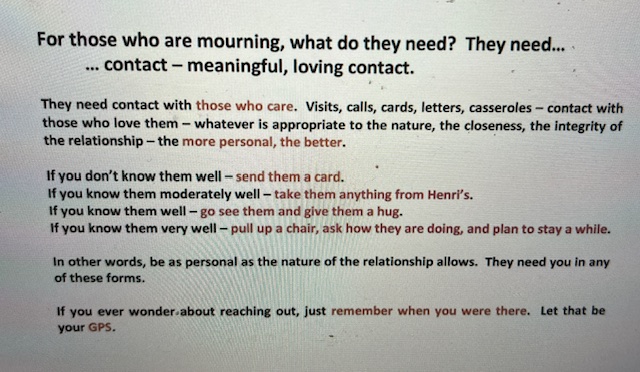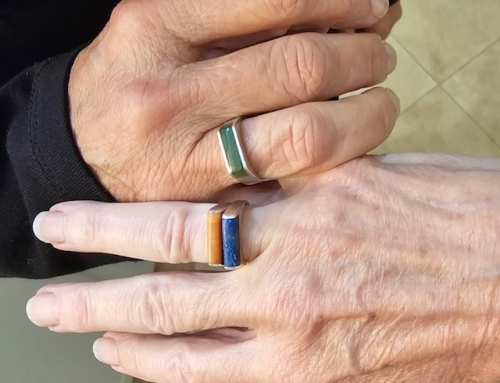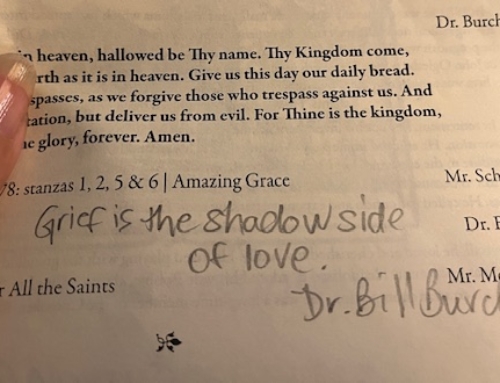
Good morning…
She wrote me after yesterday’s post, Abby’s Anniversary.
“Sue, I don’t personally know any of these people and I’m reading your message with tears running down my face. I can’t imagine facing what they face. Is there anything someone who doesn’t know them can do to support? Obviously I’ve been praying for all of them. But is there anything that you could think of on a personal level that wouldn’t be too intrusive? Thanks.”
What a great question, a really great question.
Being too intrusive is a real risk we face as we are moved by the plight of the broken hearted. First and foremost we want to do no harm. We need to respect healthy boundaries. We do not want to pile pain upon pain. Proverbs 25:20 (GNT) gives us this warning: Singing to a person who is depressed is like taking off a person’s clothes on a cold day or like rubbing salt in a wound.
So, does that mean we just do nothing when tears of solidarity run down our own face? I sat for a while and prayerfully pondered, “God, what helpful wisdom might I share with this tenderhearted friend?”
In the silence it hit me. Ron Greer, a beloved pastoral counselor in our area, has written tenderly about processing grief after losing his son Eric (Markings on the Windowsill) and after losing a his dear wife Karen (The Quiet House). I knew he had written something in each of these books about guidelines for reaching out to people who are suffering. Both of these books are in my top ten favorites, but both of my copies were still at the church after last Sunday’s resource table. So, I decided to text Ron to see if he could share with me a summary of his personal recommendations. Within the hour he responded with this wisdom.

So, to our loyal reader who found herself in tears for three strangers, I offer three possibilities.
First, realize that tears are a sign of the Holy Spirit at work in our heart. We are tenderized by compassion. Ron Greer reminded me of his wisdom from Markings on the Windowsill: “If you have compassion, it will show. The word compassion finds its origin in the Latin word pati, which means both ‘to suffer’ and ‘to endure.’ It points to caring for the long haul. It means suffering with another, to join in the struggle with patience and without hurry.” Having compassion for a stranger, personally, from a distance, taps into the power of the Holy Spirit which bonds us all.
The Spirit helps us. We are very weak, but the Spirit helps us with our weakness. We don’t know how to pray as we should, but the Spirit himself speaks to God for us. He begs God for us, speaking to him with feelings too deep for words (Romans 8:26, ERV). First, we must trust that the Spirit is using our private tears for the good of those suffering.
Second, prayer holds miracle-working power. So, even though we don’t understand exactly how it works, “Keep praying. Keep praying. Keep praying.” Ongoing prayer is our most powerful gift, an invisible gift we will never fully understand, an intimate gift that somehow helps to open a pathway to healing.
And, third, my encouragement is this: “Follow the practical advice of Ron Greer.” Ron is a compassionate man of integrity who has known deep sorrow and has been guided by God to fullness of life. According to how well we know those in pain, we reach out as the Spirit moves. We all need contact, meaningful loving contact. The more personal, the better. Revisit often the tangible suggestions Ron shared with me yesterday.
…Sue…
P.S. My friend wrote after this blog to ask if she might write an encouraging note without breaching the privacy of these families. This was my recommendation to her: “You could write a loving note and take it into the church with their names on the outside envelop. The Smith family. The DeShetler family. The Darland family. If you take them into Rev. Angela House, Northside’s Director of Pastoral Care, she will address them and send them to these dear families. They will love feeling God’s love expressed through your kind words.”
P.S.S. Photo by Virginia Berbece on Unsplash.





